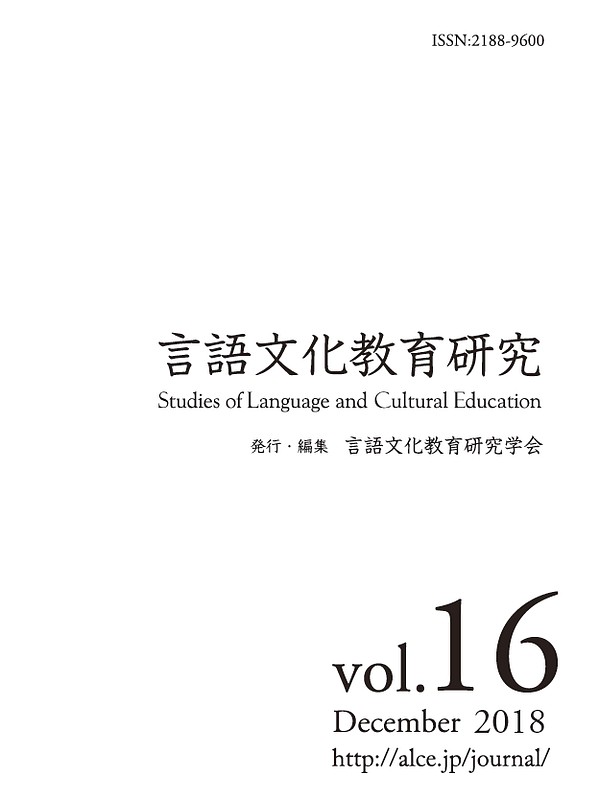Volume 16
Displaying 1-21 of 21 articles from this issue
- |<
- <
- 1
- >
- >|
Special issue on the Power of Narrative
Editors’ Introduction
-
2018 Volume 16 Pages 1
Published: December 31, 2018
Released on J-STAGE: May 12, 2019
Download PDF (2019K)
Symposium
-
2018 Volume 16 Pages 2-11
Published: December 31, 2018
Released on J-STAGE: May 12, 2019
Download PDF (1915K)
Guest Papers
-
2018 Volume 16 Pages 12-32
Published: December 31, 2018
Released on J-STAGE: May 12, 2019
Download PDF (1920K) -
2018 Volume 16 Pages 33-44
Published: December 31, 2018
Released on J-STAGE: May 12, 2019
Download PDF (4152K) -
2018 Volume 16 Pages 45-54
Published: December 31, 2018
Released on J-STAGE: May 12, 2019
Download PDF (1858K) -
2018 Volume 16 Pages 55-62
Published: December 31, 2018
Released on J-STAGE: May 12, 2019
Download PDF (1844K)
Articles
-
2018 Volume 16 Pages 63-83
Published: December 31, 2018
Released on J-STAGE: May 12, 2019
Download PDF (1921K) -
Possibilities of narrative for rethinking my“selfishness”as a Japanese language education researcher2018 Volume 16 Pages 84-95
Published: December 31, 2018
Released on J-STAGE: May 12, 2019
Download PDF (1969K)
Regular contents
Articles
-
2018 Volume 16 Pages 96-114
Published: December 31, 2018
Released on J-STAGE: May 12, 2019
Download PDF (1903K) -
2018 Volume 16 Pages 115-135
Published: December 31, 2018
Released on J-STAGE: May 12, 2019
Download PDF (2294K) -
2018 Volume 16 Pages 136-156
Published: December 31, 2018
Released on J-STAGE: May 12, 2019
Download PDF (2112K) -
2018 Volume 16 Pages 157-176
Published: December 31, 2018
Released on J-STAGE: May 12, 2019
Download PDF (2218K) -
2018 Volume 16 Pages 177-197
Published: December 31, 2018
Released on J-STAGE: May 12, 2019
Download PDF (2223K) -
2018 Volume 16 Pages 198-218
Published: December 31, 2018
Released on J-STAGE: May 12, 2019
Download PDF (2352K) -
2018 Volume 16 Pages 219-239
Published: December 31, 2018
Released on J-STAGE: May 12, 2019
Download PDF (2985K)
Forums
-
Consideration of the gaps between career consciousness and career support for international students2018 Volume 16 Pages 240-248
Published: December 31, 2018
Released on J-STAGE: May 12, 2019
Download PDF (1850K) -
2018 Volume 16 Pages 249-259
Published: December 31, 2018
Released on J-STAGE: May 12, 2019
Download PDF (1963K) -
2018 Volume 16 Pages 260-278
Published: December 31, 2018
Released on J-STAGE: May 12, 2019
Download PDF (2021K) -
2018 Volume 16 Pages 279-300
Published: December 31, 2018
Released on J-STAGE: May 12, 2019
Download PDF (4942K)
Editorial Board
-
2018 Volume 16 Pages 301-303
Published: December 31, 2018
Released on J-STAGE: May 12, 2019
Download PDF (1802K) -
2018 Volume 16 Pages 304
Published: 2018
Released on J-STAGE: May 12, 2019
Download PDF (1599K)
- |<
- <
- 1
- >
- >|
